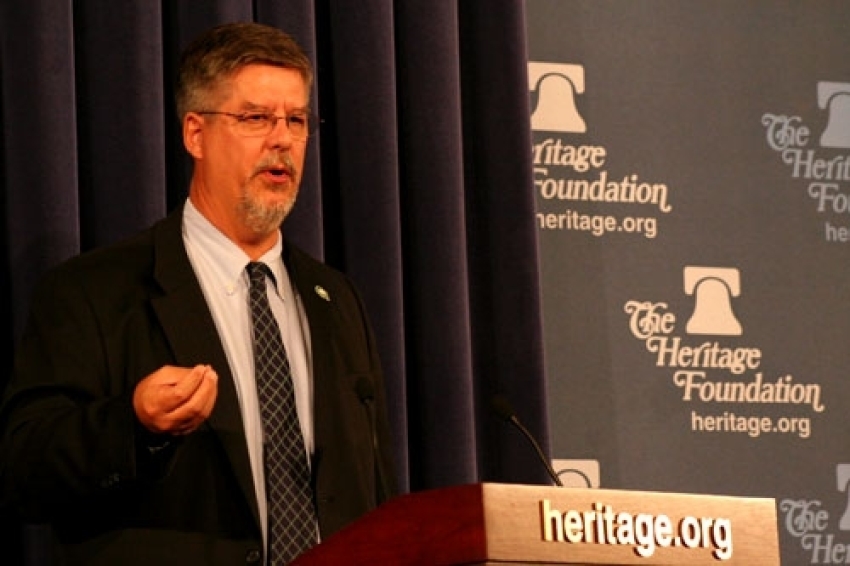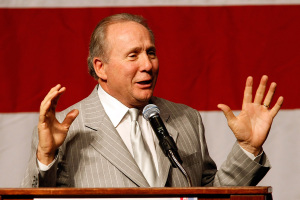Christian Decision Making on Creation Care and Climate Change

Editor's Note: This is part two of a two-part series on global warming and creation care written in a point-counterpoint format. Part one can be read here.
In "Climate Change, Creation Care, and the Cosmic Glue," Paul de Vries sets forth excellent principles for Christian care of creation:
- The earth was good when God made it, and "When we humans have messed up some aspects of God's creation, we should seek to restore them."
- People should be stewards of God's earth, and dominion granted in Genesis 1:28 does not mean abuse but "'improving and protecting' nature."
- We are to love our neighbors as ourselves, including by how we treat the earth and its resources.
- Jesus Christ "dwells in his creation, sustaining everything that exists," and we should "serve our Creator and take some responsibility to free his creation from its being so badly 'subjected to futility' (Romans 8:20, partly through pollution) and its being in 'bondage to decay' (Romans 8:21, partly through depletion of natural resources."
With these every thoughtful Christian should agree.
Yet going from those principles to specific actions requires additional factual information about the world and how it works. The principles won't tell us whether we should recycle this or that substance; practice this or that sort of mining or farming; or use this or that sort of energy, vehicle, or light bulb.
Or, to take a specific point with which de Vries begins, those principles cannot tell us whether adding carbon dioxide to the atmosphere will cause no warming, some warming but not dangerous, or lots of warming and grave danger—or how to respond.
Let's look a little more closely at global warming. Mr. de Vries begins by reference to our "uses of hydro-carbon fuels, believed to be the main human contributor to global warming," and adds, "Global warming is alarming—even if only 1.5˚ F in 200 years."
There are two problems with this.
The first problem is that de Vries mentions only one result of using hydro-carbon fuels, an indirect one: global warming. He doesn't mention two others. Both need to be considered alongside the warming effect.
The first and more obvious is a direct one: the energy we get from hydro-carbon fuels. There's electricity for light, heat, cooking, air conditioning, refrigeration, factories, schools, hospitals, and practically everything we do. Even simply for heating and cooking, electricity, because it is so much cleaner than burning wood and dried dung (primary heating and cooking fuels in much of the developing world), saves tens of millions of human lives every year. And then of course there's gasoline and diesel to transport ourselves and all the food, clothing, and everything else we depend on for life and health.
The second and less obvious result is, like global warming, indirect: increased plant growth. Hundreds of studies demonstrate that plants grow better with more carbon dioxide in the air. For every doubling of atmospheric CO2 concentration, there is an average 35 percent increase in plant growth efficiency. Plants grow better in warmer and cooler climates and in drier and wetter soil. They resist disease and pests better.
A major review of such studies estimates that the excess value of global crop yields from 1960–2012 solely because of the CO2 we've added to the air in the last two centuries was about $3.2 trillion, and it projects that, with CO2 levels rising as expected, there will be an additional $9.8 trillion in crop yields. That benefits all life on earth, but it benefits poor people the most by making food more abundant and less expensive.
The second problem with de Vries's statement is scientifically questionable, indeed probably false, that 1.5˚ F of global warming in 200 years should be "alarming." The atmosphere has warmed and cooled that much and that rapidly repeatedly in the past. All life on earth tends to do better in warmer than in colder climates.
The alarm over global warming arises primarily from belief that added CO2 in the air causes a lot of warming—5.4˚ F or more for doubled CO2. Computer climate models used by the United Nations Intergovernmental Panel on Climate Change have for over 20 years been written with that assumption.
But the models fail the test of real-world observation. Over 95 percent point toward two or more times as much warming as actually occurred between 1979 and the present, and none predicted the fact, now widely acknowledged even among climate scientists who have been at the forefront of alarm over global warming, that there has been no warming for the last 18 years.
These facts suggest that CO2's warming effect is much smaller than the alarmists thought. This has led many climate scientists to reduce estimates of "climate sensitivity"— how much average global atmospheric surface temperature will rise in response to doubled concentration of atmospheric CO2. In contrast with models, observationally based estimates have ranges like 0.54˚ F to 1.8˚ F or 2.25˚ F to 5.4˚ F with a best estimate of 3.15˚ F. No empirical studies support the idea that the net effects of global warming under 3.6˚ F would be harmful.
Mr. de Vries also neglects to ask the impact of trying to reduce future temperatures by reducing our use of hydro-carbon fuels.
On temperature, the impact would be negligible, but the cost huge. For example, complete compliance with the federal Environmental Protection Agency's proposed rule requiring a 30 percent reduction in CO2 emissions from existing power plants would achieve under four hundredths of one degree Fahrenheit reduction in global warming—an amount too small to measure and inconsequential for human and other life. Yet it would cost about $50 billion a year, reduce the average family's income by about $1,200 per year, and destroy about 600,000 jobs. The EPA, in fact, claims no direct human health benefits from its rule.
But the impact on the poor around the world—by raising the cost of electricity and other energy (since it costs several times as much to generate energy from wind and solar as from hydro-carbons)—would be tragic.
This is why 49 scientists (including 21 climate scientists), 22 economists and policy experts, 51 theologians, philosophers, and pastors, 32 ministry leaders, and 13 media leaders signed Protect the Poor: Ten Reasons to Oppose Harmful Climate Change Policies, a declaration released in September by the Cornwall Alliance for the Stewardship of Creation and supported by a major research paper, A Call to Truth, Prudence, and Protection of the Poor 2014: The Case against Harmful Climate Policies Gets Stronger, by a climatologist and an environmental economist who specializes in climate studies. Read them for yourself—and consider how best to love your neighbor as yourself with regard to climate change.



























